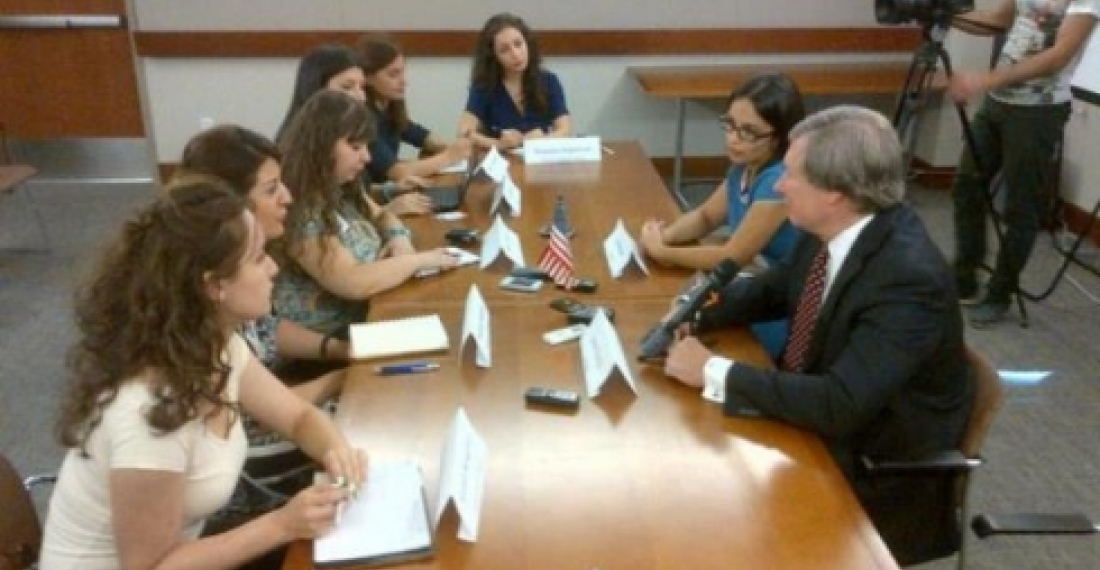It is a reflection of both the frustration felt in the international community at lack of progress in the negotitations of the peaceful settlement of the Nagorno-Karabakh conflict, as well as of the concern about the dangers of the current situation. Armenia and Azerbaijan are being told to get their act together and move the peace process forward. The message has been trickling down in different ways from diplomats and politicians to the leadership of both Armenia and Azerbaijan for some weeks.
Yesterday in Yerevan, the U.S. Co-Chair of OSCE Minsk Group, Ambassador James Warlick finally stated publicly that "the occasional meetings taking place between Armenian and Azerbaijani Presidents and Foreign Ministers are no longer enough".
The U.S. Co-Chair stated it answering the question of Mediamax's correspondent in Yerevan today.
"It's time to advance the talks to another level. More formal talks are needed and the parties should decide how that process should be", the U.S. diplomat was quoted by the Armenian news agency MEDIAMAX as saying.
According to Warlick, in order to come to final terms over the key elements of establishing peace the parties should have regular high-level meetings.
Commonspace.eu political editor described Warlick's intervention as "positive and significant". "That more of the same is no longer possible became clear in the summer when Armenia and Azerbaijan again engaged in a senseless tit for tat violence on the line of contact which left many casualties. However the invitation to the sides to move the process forward has some dangers too. The sides must determine their own format for negotiations, as Ambassador Warlick has stated. However they must not be allowed to engage in endless talks about talks. The co-Chair need to set a deadline by which time the new format has to be agreed. Otherwise this can turn into another useless exercise in posturing."
source: commonspace.eu with agencies.
photo: Ambassador James Warlick speaking with Armenian journalists in Yerevan on 17 September 2014.







